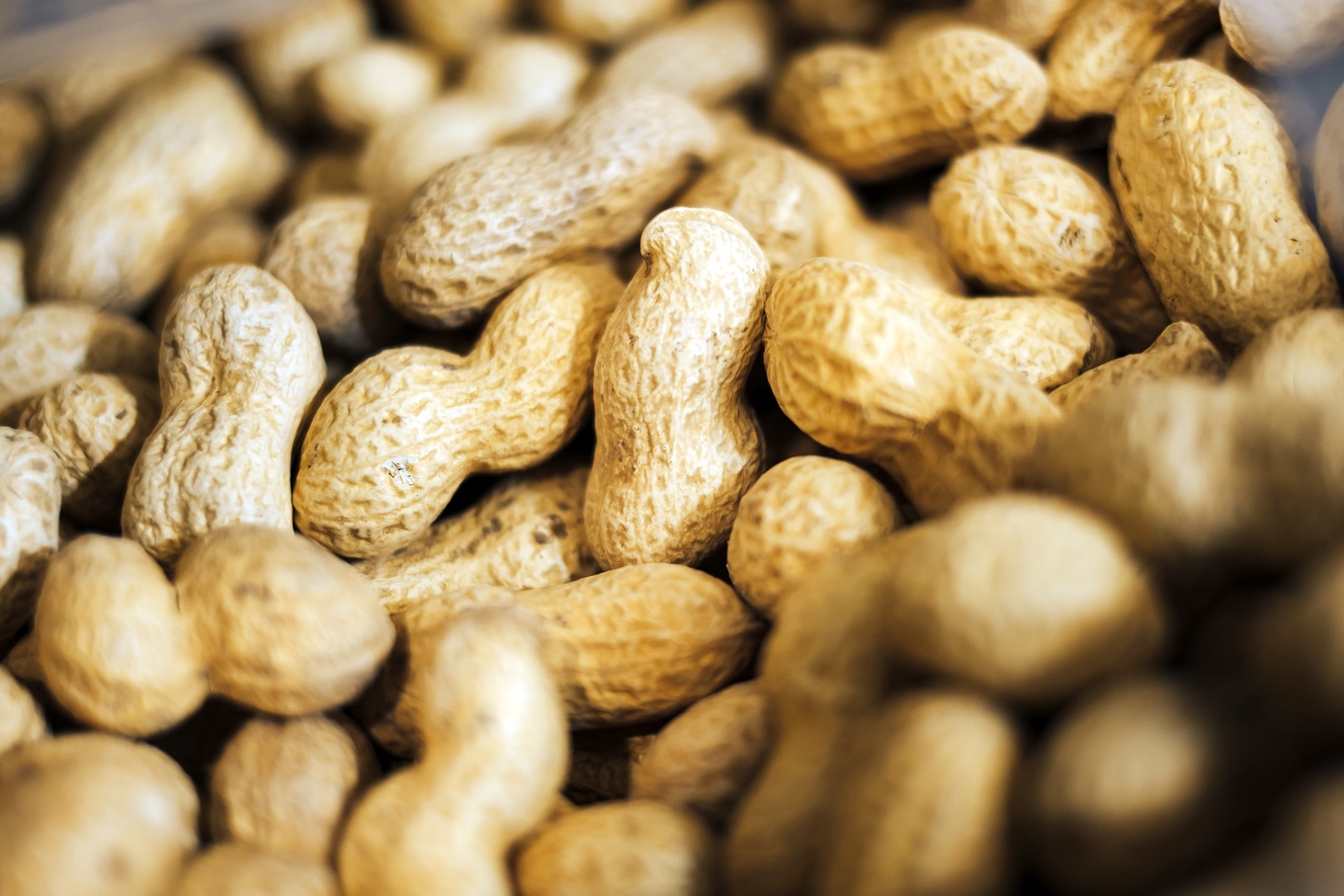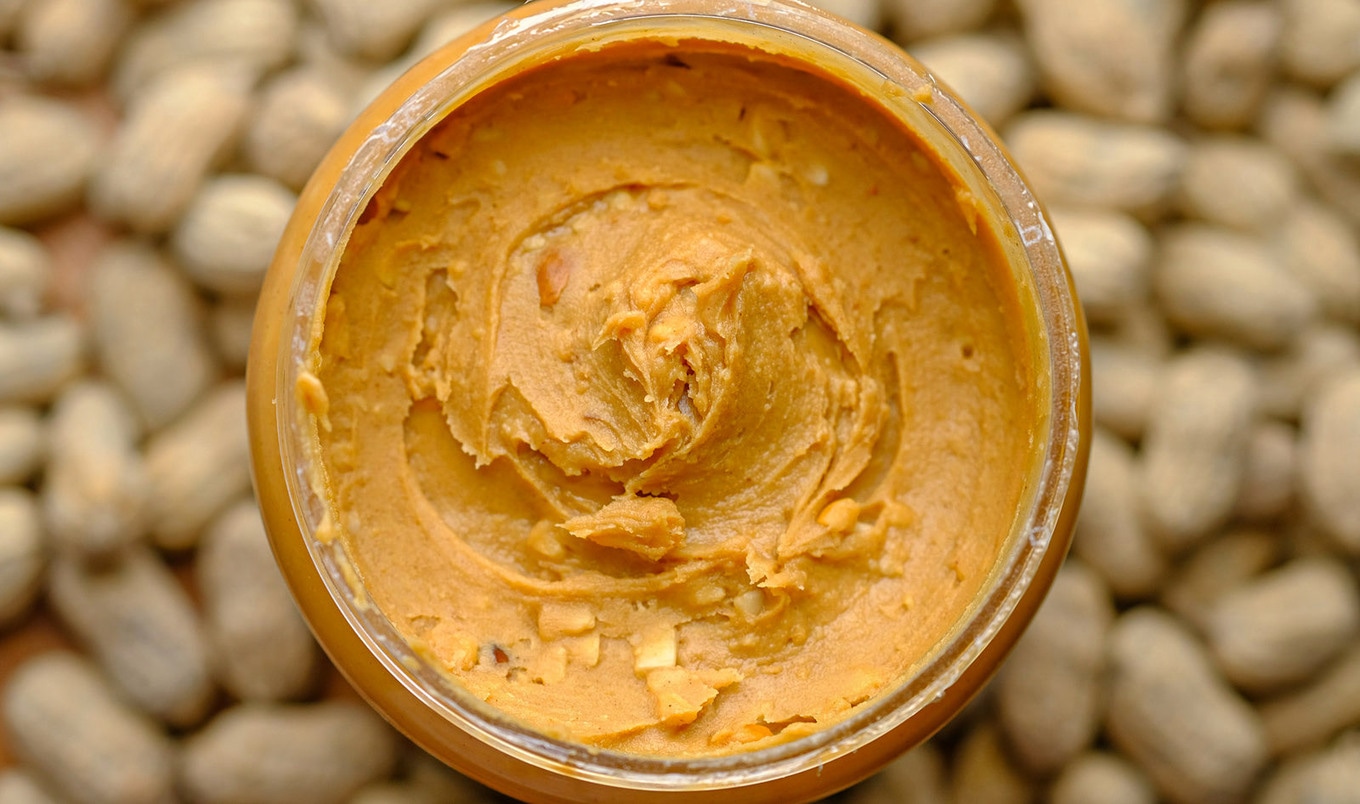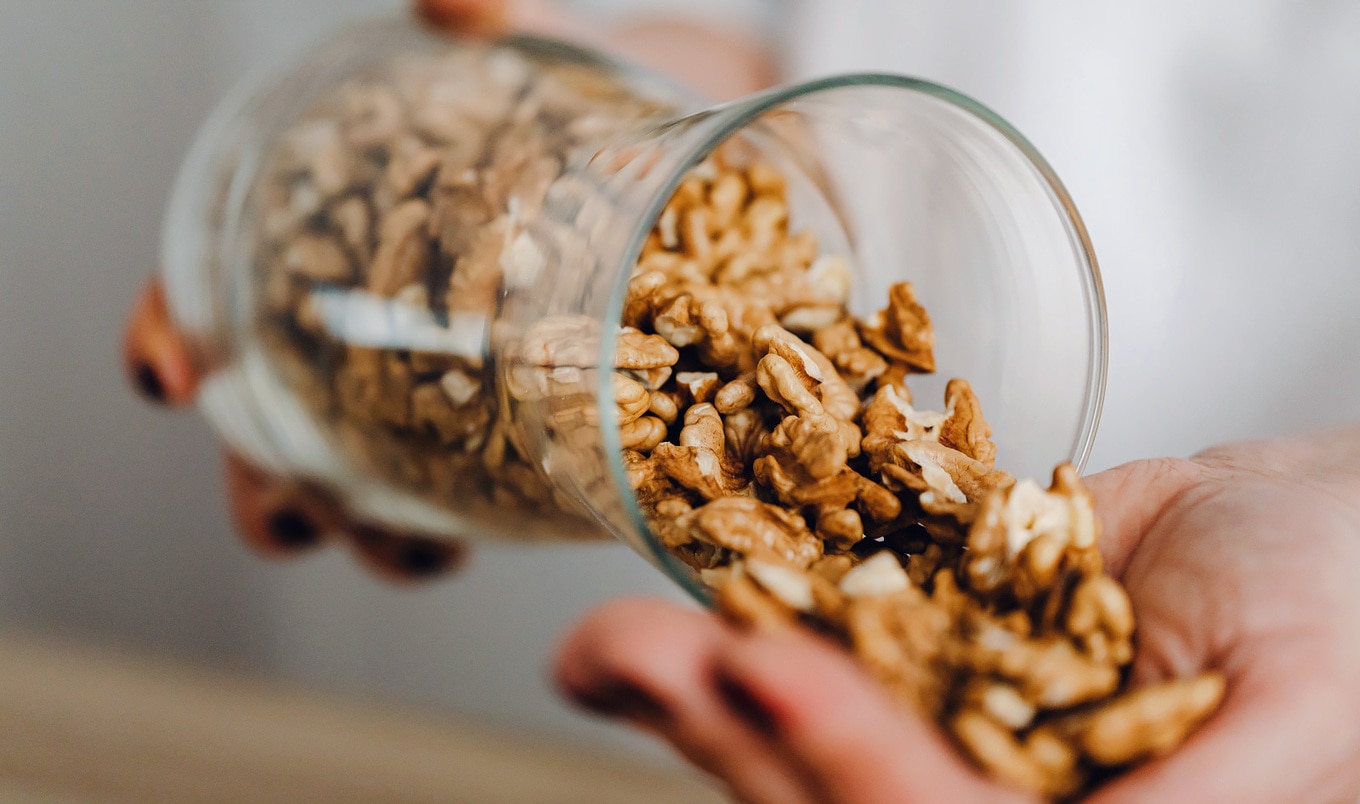Peanuts are a popular snack at baseball games but new research shows that the legumes might also be a home run when it comes to health benefits. A study published this month in the scientific journal Antioxidants found a link between the consumption of peanuts and peanut butter and improved vascular health.
Here, the researchers were specifically interested in observing changes in health among young people—as dietary interventions among older or ill individuals can deliver more dramatic results, the researchers noted. As such, they recruited 63 healthy individuals aged 18 to 33 to participate in the study.
Unsplash
“In this study group, it is more difficult to see any effect of dietary changes on health,” lead researcher Professor Rosa M. Lamuela, from the University of Barcelona Department of Nutrition, Food Science and Gastronomy, said in a statement.
In the three-arm parallel-group randomized controlled trial, the participants consumed a daily portion of peanuts in their regular diet for a period of six months. The outcome? The participants exhibited markers for improved vascular health after regular consumption of peanuts and peanut butter.
Table of Contents
Peanuts and vascular health
The vascular system (also known as the circulatory system) is made up of a network of arteries and veins responsible for delivering oxygen and nutrients to vital parts of the body while removing waste. Having a healthy vascular system is important in preventing heart disease—the leading cause of death in the United States.
 Unsplash
Unsplash
Despite their technical classification as legumes, peanuts are the most widely consumed nuts in the world and contain high amounts of fatty acids, protein, and fiber. Researchers point to polyphenols—beneficial compounds with antioxidant properties—in peanuts as protective against cardiovascular disease, building on previous literature that supports the benefits of these compounds.
“The results reveal a significant increase in urinary levels of phenolic metabolites in those young people who had eaten a daily dose of peanuts and peanut butter compared to the control group, which had eaten a cream without fiber or polyphenols,” Lamuela said.
“Similarly, participants who ate peanuts or peanut butter also showed improved levels of prostacyclin I2 [an inflammation mediator] and the ratio between thromboxane A2 [a lipid mediator] and prostacyclin I2, lipid molecules (eicosanoids) which are considered markers of vascular health,” she said.
This study is the first dietary intervention to confirm an improvement in vascular markers related to the antithrombotic (a reduction in blood clot formation) and vasodilator (opening of blood vessels) effects in healthy young people after eating peanuts.
 Unsplash
Unsplash
“Interestingly, some phenolic metabolites that increased significantly after the consumption of peanut products—especially hydroxycinnamic acids—also correlated with the improvement in both markers,” lead researcher Isabella Parilli-Moser said in a statement.
While this study linked the consumption of peanuts to vascular health, the researchers explained that more studies are necessary to understand the mechanisms behind these findings. This study is part of the ARISTOTLE project, an initiative to analyze the prebiotic and postbiotic effects of consuming peanut products, promoted by The Peanut Institute.
Health benefits of nuts
Peanuts are not the only nuts that have been linked to health benefits. Over the years, researchers have linked walnuts, which are rich in omega-3 fatty acids, to heart and brain health benefits.
Most recently, a study published last year in scientific journal Nutrients from researchers at the University of South Australia, found that eating two ounces of walnuts per day for 16 weeks in undergraduate university students improved stress levels.
 Pexels
Pexels
More generally, including nuts as part of a whole foods plant-based diet that also includes fruits, vegetables, coffee, and legumes can lower risk of developing type 2 diabetes.
A study published last year in scientific journal Diabetologia and conducted by researchers at the Department of Nutrition, Harvard T.H. Chan School of Public Health, collected data from 10,684 participants and found that those who consumed these foods in this “healthy” group had a lower risk of type 2 diabetes when compared to participants who consumed unhealthy foods (such as refined grains and desserts) and animal foods (such as eggs, dairy, and meat).
“While it is difficult to tease out the contributions of individual foods because they were analyzed together as a pattern, individual metabolites from consumption of polyphenol-rich plant foods like fruits, vegetables, coffee, and legumes are all closely linked to a healthy plant-based diet and lower risk of diabetes,” Professor Frank Hu, who led the study, said in a statement at the time.







